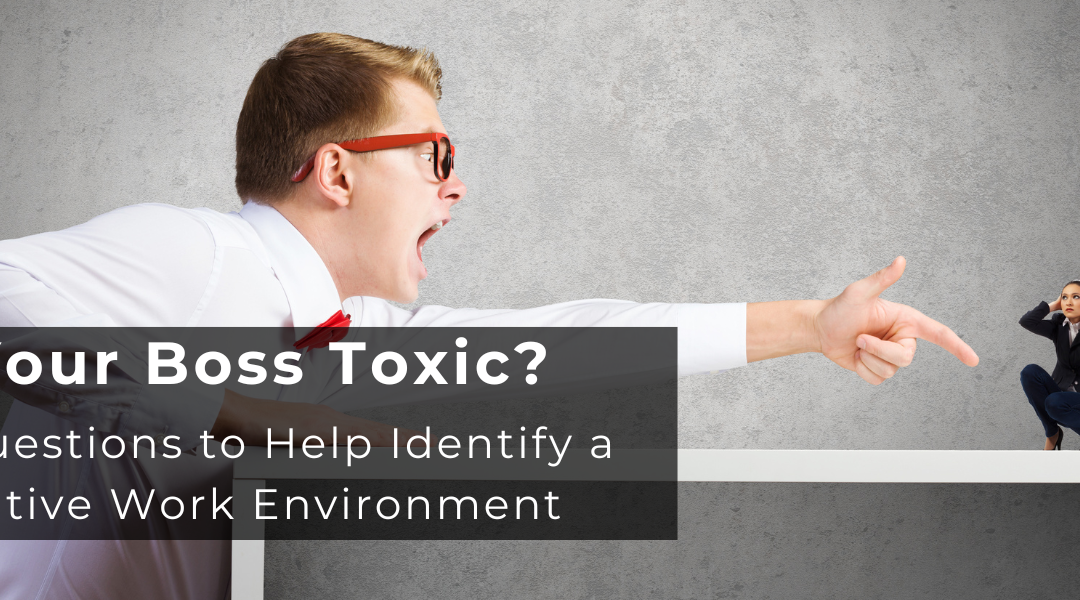In my previous article, I discussed the impact of working for a toxic CEO and a passive managing director. A toxic boss can have a significant negative impact on a workplace and the well-being of their employees. If you are wondering if you have a toxic boss, here are 10 questions to help you identify if this may be the case:
- Do you feel anxious, drained, or stressed after interacting with your boss?
- Does your boss frequently belittle, criticize, or disrespect you or your colleagues?
- Do you feel like you are constantly walking on eggshells around your boss?
- Does your boss make unrealistic or unreasonable demands on you or your team?
- Does your boss take credit for your accomplishments or blame you for their mistakes?
- Do you feel like you are constantly being micromanaged or not trusted to do your job?
- Does your boss ignore your concerns or dismiss your ideas?
- Do you feel like your boss is only interested in their own success, rather than the success of the team?
- Does your boss play favorites or create a divisive work environment?
- Do you feel like you are constantly in conflict with your boss?
If you answered yes to several of these questions, it may be indicative of a toxic boss. It’s important to remember that no job is worth sacrificing your mental health and well-being. If you are experiencing a toxic work environment, it may be necessary to seek support and consider your options.
Developing emotional intelligence and self-management

In addition to identifying a toxic boss, it’s also important to develop emotional intelligence and self-management skills. Emotional intelligence is the ability to recognize, understand, and manage our own emotions, as well as recognize and understand the emotions of others. Self-management is the ability to control and regulate our emotions, thoughts, and behaviors. Both of these skills are crucial for navigating and managing a toxic work environment.
Some strategies for developing emotional intelligence and self-management skills include:
- Practicing mindfulness and meditation
- Learning to recognize and name emotions
- Developing empathy for others
- Learning to set boundaries
- Practicing active listening
- Engaging in self-reflection and self-awareness
- Learning stress management techniques
By developing emotional intelligence and self-management skills, you will be better equipped to handle difficult situations and maintain a sense of control and balance in a toxic work environment. These skills can help you to manage your own emotions and reactions and communicate effectively with your boss, which can help to diffuse difficult situations and reduce stress.
Ultimately, it’s important to remember that your mental health and well-being should always be your top priority. And while developing these skills can help you to navigate a toxic work environment, if you find that it’s impossible to overcome and it’s negatively impacting your well-being, it’s important to consider other options and not hesitate to leave the toxic work environment behind.
View my LinkedIn Profile at the following link:
https://www.linkedin.com/in/joshuaroode/
Follow me on Social Media
- Youtube: http://bit.ly/2ltvvV4
- Facebook: http://bit.ly/2lbXIgM
- Instagram: http://bit.ly/2maQwpe
- Twitter: http://bit.ly/2l2OD9a

